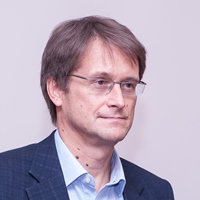New Dissertation Councils Introduced at HSE

From February 1, 2018, new rules will apply to dissertation defense for Candidate of Sciences (PhD) and Doctor of Sciences (DS) degrees. Vadim Radaev, First Vice Rector at HSE, helped us understand what has changed, as well as how it is necessary to prepare for the defense process.

Vadim Radaev
Why is it important that the university has the right to assign its own academic degrees?
Before this came about, our university operated as part of the academic staff attestation system, which was strictly regulated by the Higher Attestation Committee (HAC) on behalf of the state. It had some advantages, but it also had some serious downsides, which made it difficult to effectively assess the quality of dissertations. Now, we have an opportunity to create new dissertation councils, and, most importantly, to build our own system. It will be more flexible, more focused on the assessment of the research ability, more open to integration in the international academic community, and more consistent with the procedures implemented at leading international universities. Of course, there is no such thing as a universal attestation system; each country and each university has its own practices around academic degree assignment – and that’s because they are able to define this system themselves. Now the Higher School of Economics also has this opportunity.
Will HSE academic degrees be adequately acknowledged and accepted by other academic institutions?
An HSE degree will most certainly be recognized both in Russia and internationally, thanks to our university’s excellent reputation. What’s more, it will also be recognized formally, since we will remain a part of the state academic staff attestation system. Therefore, an HSE academic degree will also carry an official status awarded by the government.
Does this mean that an HSE’s PhD degree will be recognized outside HSE, and the fact that it has been issued by HSE is not so important?
Since HSE academic degrees remain a part of the state attestation system, a PhD HSE will be recognized anywhere. In addition, it will be easier to have it recognized outside of Russia.
What will change in the dissertation defense procedure?
One of the key changes is that there will be an alternative (additional) option of dissertation defense. This means that, as was previously the case, the applicant can submit a thesis with published papers attached, or, from February, they can choose to defend several published academic papers on the same topic. This option is completely in line with the practices implemented at other international universities.
The requirements for academic papers are also changing. From February, they will be determined by each dissertation council and will take into account specific features of the field of study according to general HSE standards which have been developed together by all of the dissertation councils. They will be approved by the Academic Council on February 2. The standards indicate the minimum number of papers that should be attached to the thesis and the number and features of the publications will depend on whether the paper belongs to the social sciences/humanities, or natural/engineering sciences. The standards also indicate where the publications should be indexed (WoS, Scopus, HSE-recommended journals etc), as well as the number of papers written without co-authors. We will also discontinue our use of the HAC official list of journals. Once again, the standards are not prescriptive: the dissertation councils will have the freedom to suggest corrections according to the specifics of their respective fields.
In addition, the defense procedure now allows two equal working languages: Russian and English. Applicants will be able to choose one of these languages both for the paper and the viva voce process. Previously, the applicants had to have everything translated into Russian.
While we used to have several dissertation councils belonging to one area (as was the case in economics), we now have 16 councils, one for each area of studies (mathematics, economics, public administration, etc).
The dissertation councils will no longer carry out the defense procedures. Their responsibilities include accepting and considering the thesis according to the requirements of the qualification. The defense procedure itself will be performed by dissertation committees created by the council for each specific thesis. Traditionally, the dissertation councils included experts in a broad range of areas within the field of study, and most of them didn’t read the full text of the dissertation- they only looked at the abstract. The new procedure ensures that the dissertation committee includes experts in the specific area of the dissertation. Each of the committees will consist of five experts, two of them external, and at least one representing an international institution. All the committee members will read the dissertation, discuss it, and conduct the public defense process. The committee will then make the decision as to whether to confer the academic degree. After the discussion and the decision, each of the committee members will write a personal review of the paper, which will then be published for free access. As the dissertation council makes sure that the defense procedure has been performed according to these rules, it is responsible for the final decision, which is determined by a committee member vote. The degree certificate will be signed by the chair of the dissertation council and the HSE Rector.
What will be the difference between a degree from HSE and an international PhD degree?
PhD HSE will be similar to an international academic degree. The new procedure brings us closer to the practices implemented at international universities, given that the procedure varies greatly from one university to another in terms of applicant requirements and the defense procedure. Generally, a PhD from HSE is the same as a degree from any other international university. However, we have decided to keep one of our traditions: we will maintain our two-stage system for academic degrees and, as such, we will keep theDoctor of Science HSE, DS HSE degree. This is because it is still common in other countries, for example, in Germany.
Is it possible for a student to defend a PhD/doctoral dissertation at an HSE dissertation council, if they have completed their studies at another university (including postgraduate)?
All dissertation councils are obliged to consider dissertations that comply with the formal requirements, no matter where they come from. The paper may be written elsewhere, whether it be another Russian university or an international one. This system is totally open. Formally, this has always been the case, but previously, a foreigner who didn’t speak Russian was required to translate the paper into Russian and also defend it in Russian. Now, any international student, regardless of their Russian skills, will have the opportunity to obtain an academic degree from the Higher School of Economics.
See also:
HSE University Becomes the First Russian University to Confer a Doctoral Degree in Computer Science
Upon successfully defending his dissertation before HSE Dissertation Council in Computer Science, Pavel Dvurechensky became the first Doctor of Computer Science in Russia. This was possible thanks to the fact that, starting in 2018, HSE University received the right to award its own academic degrees.
First International Recipient of DSc Degree in Mathematics From HSE University
Edmond W.H. Lee, a full professor at the Department of Mathematics, Nova Southeastern University, USA, has recently defended his Doctor of Sciences (DSc) thesis at the Dissertation Council in Mathematics, HSE University. The DSc in Russia is a higher doctoral degree that can be earned after the PhD. Professor Lee’s defence was held over Zoom, with the candidate and his dissertation committee members participating remotely from 5 cities in Brazil, Israel, Russia, and the USA. Lee became the first international recipient of a DSc degree in Mathematics from HSE University.
First PhD Thesis Presented as Articles on the Topic Defended at HSE
On September 11, Ivan Smirnov, graduate of the HSE Institute of Education doctoral programme, defended his Candidate of Sciences (Education) on ‘Differentiation of students by academic performance in a social network’. His thesis consists of four articles which had been published in academic journals, as well as a description of the study methods, design and main outcomes.
First PhD at HSE Received under New Procedure
On May 22, the first thesis for an HSE PhD degree was defended. Following the new procedure, mathematician Pavlo Gavrylenko defended his thesis on isomonodromic deformations and quantum theory. This took place not before a big dissertation council, but a committee of experts in this particular field of mathematical physics.
Leading Universities and the Right to Award Academic Degrees
Last year, the Russian Federation gave leading universities the right to award their own academic degrees on a trial basis, and this prompted universities to create models for future implementation. What the new system will bring and what needs to be done in order to render it fully operational was the focus of the board meeting of the Association of Global Universities, held on February 12 at HSE.


